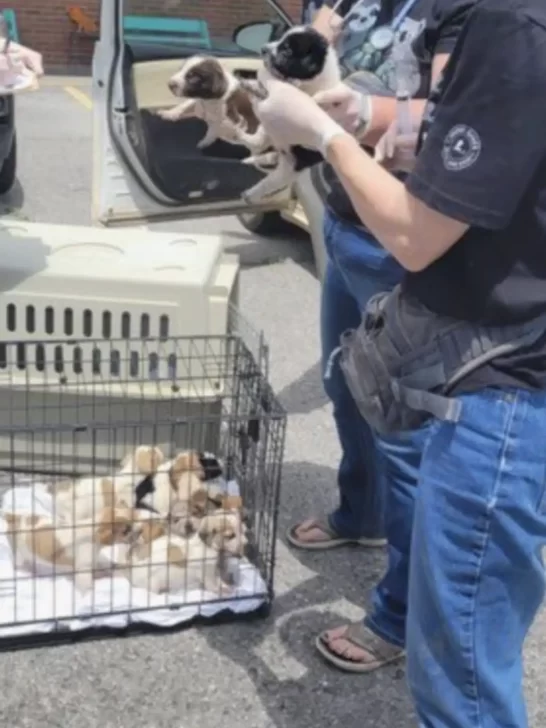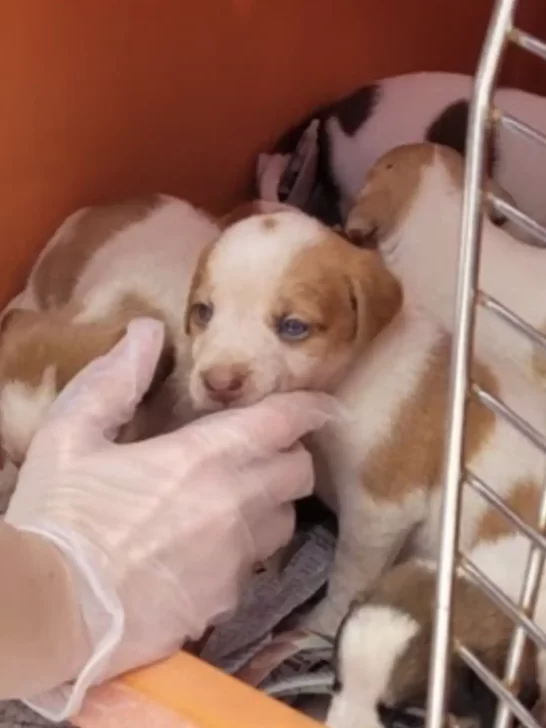
Abandoned in a cardboard box on the side of a rural Missouri road, a group of 30 puppies were left helpless and confused. Too weak to fend for themselves, they huddled together inside the box, finding comfort in each other’s presence.
A group of Good Samaritans discovered the puppies and, alarmed by their condition, immediately reached out to local rescue authorities for help.
When rescuers from Wright-Way Rescue learned of the puppies, they quickly stepped in to assist. The team was shocked by the number of puppies dumped in one location.
“We’ve encountered many dumped and abandoned litters of puppies and dogs, but never this many in one place,” Wright-Way Rescue executive director Christy Anderson told The Dodo. “And these puppies were so young. It was just heartbreaking.”

Rescue Efforts and Health Checks
The rescue team took the puppies to a local veterinarian for health checks, where they discovered many were suffering from ticks, which could have been fatal if left untreated.
Upon further examination, rescuers realized the puppies came from at least three different litters, each varying in age. Specialized care was needed for each pup based on their age and condition.

The Road to Recovery
Now safe at Wright-Way Rescue, the puppies are receiving the love and attention they desperately need. Over the next few weeks, they will continue to receive medical care, enjoy nutritious food, and eventually undergo spay and neuter surgeries.
Wright-Way Rescue is deeply thankful for the support they’ve received from the community and encourages others to join in any way they can.
“I wish more people knew that their help is urgently needed in animal welfare, whether as a foster, donor, or adopter,” Anderson shared. “If you’re willing to help in any way, you are needed.”

A Bright Future Ahead
As the puppies grow healthier and stronger, they’ll soon be ready for the ultimate adventure—finding their forever homes. Wright-Way Rescue wrote in a Facebook post,
“We’re actively seeking loving foster and adoptive families to provide them with a warm, nurturing environment where they can thrive.”
